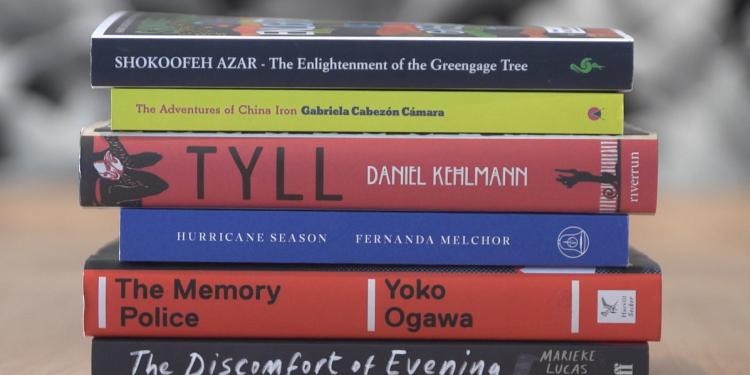
Kairos
by Jenny Erpenbeck (prize winner)
Translated by Michael Hofmann

The International Booker Prize is awarded annually for a single book, translated into English and published in the UK or Ireland
The Booker Prizes exist to reward the finest in fiction. The symmetrical relationship between the Booker Prize and the International Booker Prize ensures that the Booker honours fiction on a global basis: world-class fiction is highlighted by the prizes for English-speaking readers, whether that work was originally written in English (the Booker Prize) or translated into English (the International Booker Prize).
The International Booker Prize began life in 2005 as the Man Booker International Prize. It was initially a biennial prize for a body of work, and there was no stipulation that the work should be written in a language other than English. Early winners of the Man Booker International Prize therefore include Alice Munro, Lydia Davis and Philip Roth, as well as Ismail Kadare and Laszlo Krasznahorkai.
In 2015, after the rules of the original Booker Prize expanded to allow writers of any nationality to enter - as long as their books were written in English and published in the UK - the International Prize evolved to become the mirror image of the English-language prize. Since then it has been awarded annually for a single book, written in another language and translated into English.
The Man Group continued to sponsor both prizes until 2019, when Crankstart became the funder, and the prize names reverted to the familiar ‘Booker’ name alone.
This prize aims to encourage more reading of quality fiction from all over the world, and has already had an impact on those statistics in the UK. The vital work of translators is celebrated, with the £50,000 prize money divided equally between the author and translator. Each shortlisted author and translator also receives £2,500.
Novels and collections of short stories are both eligible.